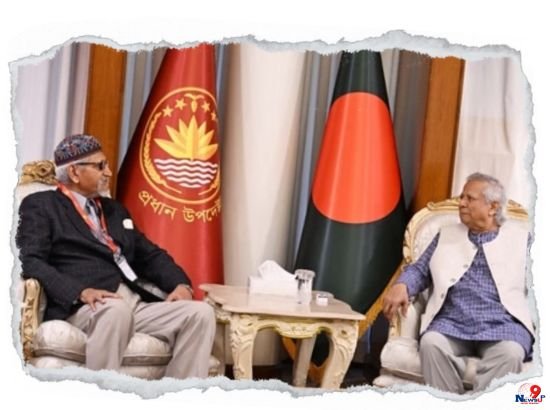
Close Aide to Muhammad Yunus Issues Shocking ‘Northeast India’ Warning Over Pahalgam Terror Attack
In a provocative and controversial statement, retired Bangladeshi Major General ALM Fazlur Rahman, a close associate of Bangladesh’s interim chief advisor Muhammad Yunus, suggested that Bangladesh should consider invading and occupying India’s northeastern states if New Delhi retaliates against Pakistan following the recent terror attack in Jammu and Kashmir’s Pahalgam.
The Pahalgam attack, which claimed the lives of 26 civilians, has escalated regional tensions. In a Facebook post written in Bengali, Rahman stated,
“If India attacks Pakistan, Bangladesh will have to occupy the seven states of northeast India. In this regard, I feel it is necessary to start discussions on a joint military arrangement with China.”
Rahman, the current head of Bangladesh’s National Independent Investigation Commission and former Director General of Bangladesh Rifles (now Border Guard Bangladesh), is widely considered to be a trusted figure in Muhammad Yunus’s circle. His remarks have raised concerns in diplomatic circles, especially given the current state of India-Bangladesh relations.
India and Bangladesh have been experiencing growing diplomatic friction in recent months. Relations hit a low point after former Prime Minister Sheikh Hasina fled to India seeking asylum, amid reports of rising violence against Hindu minorities in Bangladesh. New Delhi has expressed repeated concerns over minority rights and political instability in the neighboring country.
Adding to the strain were comments made by Muhammad Yunus during a recent visit to China, where he made a contentious reference to India’s northeastern region.
“The seven northeastern states of India are landlocked. They have no access to the ocean. Bangladesh is their only gateway to the sea and can serve as a crucial extension of the Chinese economy,” Yunus reportedly said.
This remark was widely condemned by leaders of India’s ruling Bharatiya Janata Party (BJP), who accused Yunus of aligning with China’s expansionist vision and undermining Indian sovereignty.
India’s External Affairs Minister S. Jaishankar responded pointedly during the recent BIMSTEC Foreign Ministers’ meeting, without directly naming Bangladesh or Yunus.
“Our northeastern region is emerging as a connectivity hub for BIMSTEC, with a strong network of roads, railways, waterways, energy grids, and pipelines,” he said.
“India is aware of its special responsibility in this regard.”
Shortly after Yunus’s comments, India terminated a five-year-old trans-shipment facility that allowed Bangladeshi export cargo to third countries via Indian ports and airports. Officials cited logistical congestion and growing domestic cargo needs as reasons for the decision, though many saw it as a geopolitical signal.
Meanwhile, Dhaka had already halted imports of Indian yarn, further deepening the trade and diplomatic rift.
Rahman’s provocative call for military action and his appeal for a China-Bangladesh alliance come at a highly sensitive time in South Asia. His remarks could inflame tensions in the region, particularly at a moment when cross-border terrorism, economic pressure, and shifting alliances are testing the stability of South Asia’s fragile peace.
read also – 👉 Indonesian President Condemns Pahalgam Terror Attack